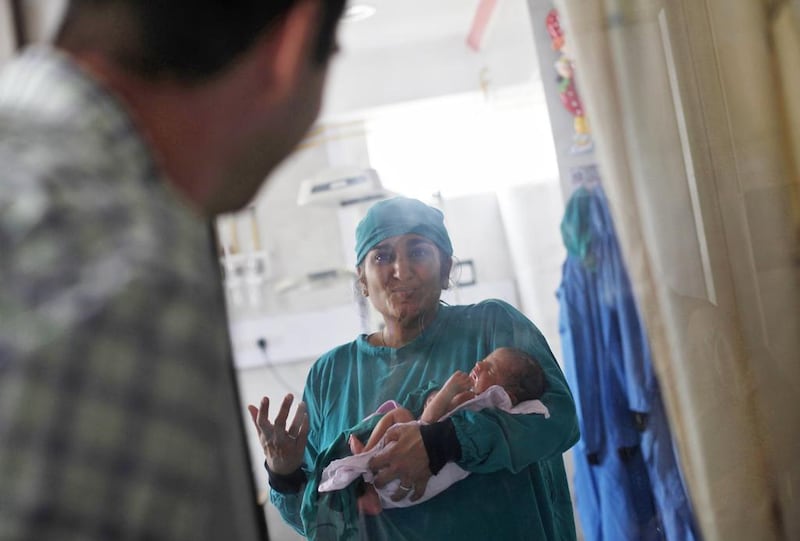Rekha Patel, the mother of toddler Gabriella, born two years ago to a surrogate in a clinic in Anand, Gujarat, believes it would be “a real tragedy” for all concerned if the Indian government banned surrogacy.
“There might be a general opinion among people who don’t really know what’s involved that rich westerners go over and drag poor Indian women off the street to carry their child for nine months,” Mrs Patel, from Epping, near London, told the BBC.
But that was “just not the case at all”. When she and her husband opted for surrogacy it was “our last chance to have a family of our own”.
There were, she said “thousands of families like ours. If it’s taken away it would be a real tragedy because we were really desperate when we went”.
Mrs Patel feels so strongly about the issue that she has launched an online petition, pleading with the Indian government to reconsider.
“To act as a surrogate has given many of India’s poor women the chance of a better life for themselves and their families,” says the petition, which already has close to 1,000 signatures.
Natalie Gamble, a lawyer who advises British and American couples on the international laws surrounding surrogacy, also fears an Indian ban would create an unregulated market in other countries, where both couples and surrogates would be in danger of exploitation.
“Intended parents” from Britain and other western countries travel to India “because the environment where they live isn’t supportive of surrogacy”.
Many European countries don’t allow the practice and, although it is legal in the UK, “it isn’t very easy to find a surrogate, which might mean a very long wait, and there is no legal recognition of any arrangement”.
In India, where surrogacy has until now been legally recognised, “you will be the legal parent of the child from birth”.
Nevertheless, parents opting to go to India face many hurdles – including the price, anything from £20,000 (Dh110,774) to £30,000. This is paid to a clinic and includes the money that goes to the surrogate and the cost of looking after her.
Although they will be legally recognised in India as the parents – and must be present and responsible for the child’s well-being from birth – the parents will not be able to return to the UK with their baby until a British passport has been issued. This can take many months.
In the UK, couples then go to court to seek a parental order before the child is legally theirs.
Surrogacy has taken off among British couples in the past few years, says Ms Gamble, increasing from about 50 cases a year to 300 or 400 today.
One of the attractions of India for British parents are experienced clinics that handle all aspects of the process, from recruiting and caring for surrogate mothers to the fertility process, including, if necessary, the sourcing of donor eggs.
Surrogacy, says Ms Gamble, “is often people’s last or only chance of having their own biological child, and almost always an absolute last resort”.
Now, she says, many of the couples she is advising “are incredibly distressed, particularly those who were committed to the process and ready to proceed”.
She fears that if the ban goes ahead other untried and unregulated markets will spring up.
“If India is closed down rather than regulated it will likely just push people to other destinations where there is much less of a track record.”
newsdesk@thenational.ae





